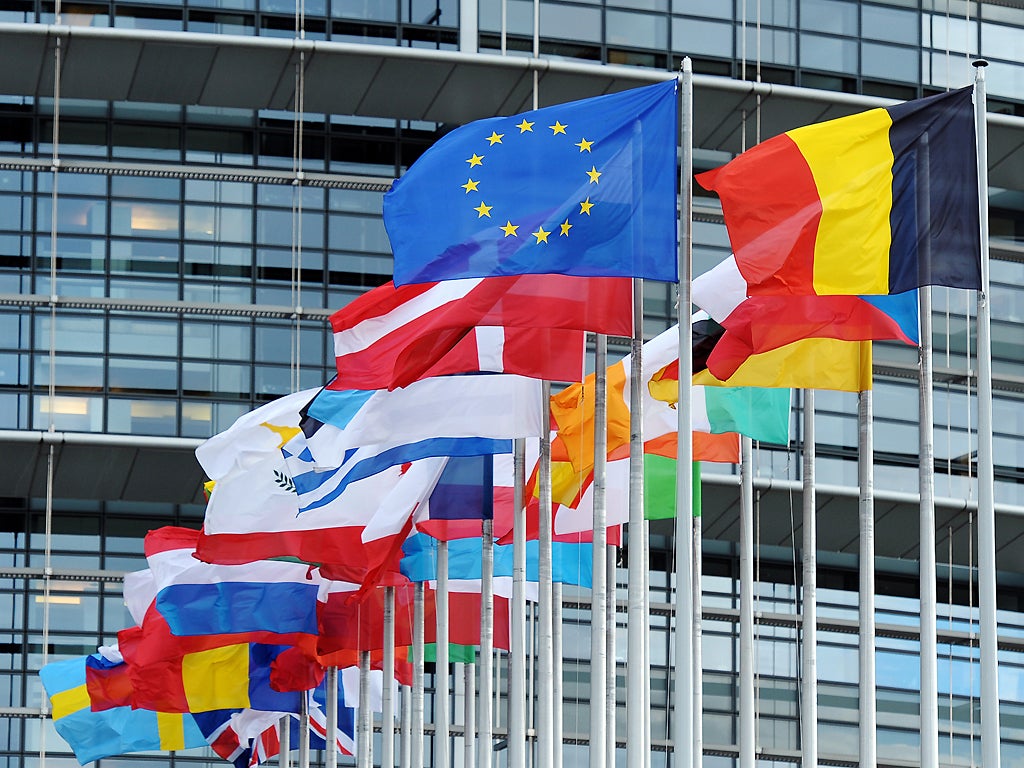'Perhaps the EU can be tolerated after all': polls show in-out promise has boosted support for remaining

David Cameron’s promise of an in/out referendum on Europe has boosted public support for remaining in the EU, according to The Independent’s latest poll of polls.
Although Conservative Eurosceptics welcomed the Prime Minister’s pledge in January to hold a referendum by 2017, it appears to have set back their cause as people focused on the choice they would have to make in such a vote. His speech prompted warnings from some businessmen that withdrawal could harm job-creating trade and foreign investment in the UK.
Before Mr Cameron’s landmark announcement, opinion polls showed that 48 per cent of the public wanted to leave the EU, while only 31 per cent would vote to stay in. But four surveys taken after his speech averaged 39 per cent in favour of withdrawal, with the same proportion backing continued membership.
“It would appear that in opening up the prospect that Britain might be able to renegotiate its terms of membership of the EU, the Prime Minister’s speech has served to persuade some people that perhaps the EU is an institution that can be tolerated after all,” said John Curtice, professor of politics at Strathclyde University, who compiled the poll of polls.
He said the apparent failure of the Cameron speech to stem the rise of the UK Independence Party and the apparent reduction of Euroscepticism, suggests that Tory MPs and strategists were misguided in thinking that Ukip’s rise is simply a consequence of anti-EU feeling.
Prof Curtice said there are two possible reasons why Ukip is still doing well—concern about immigration in an era of continuing austerity and falling living standards and because the Liberal Democrats are no longer available as a party to use express dissatisfaction with the Government. “The start of Ukip’s rise can be dated to the spring of last year when confidence in the Tories’ handling of the economy and satisfaction with the Government more generally first suffered a serious fall,” he said.
The latest weighted average of the polls conducted by ComRes, Ipsos MORI, ICM and Populus shows that Labour extended its lead over the Tories from nine points in January to 13 points last month (Feb). Labour is now on 43 per cent (up two points on the previous month), the Tories 30 per cent (down two points), the Lib Dems 10 per cent (down one point), Ukip a record high of 9 per cent (up one point) and other parties 8 per cent (unchanged). These figures would give Labour an overall majority of 118 at a general election.
Yesterday senior EU figures warned Mr Cameron that his apparent threat that Britain would leave the Union unless it won a “new settlement” would backfire. Herman Van Rompuy, President of the European Council, the 27 EU leaders, asked: “How can you possibly convince a room full of people, when you keep your hand on the door handle? How to encourage a friend to change, if your eyes are searching for your coat?”
Mr Van Rompuy told a London conference staged by the Policy Network think tank that changing the EU treaties, which would give Mr Cameron the opportunity to change Britain’s membership terms “is not presently the priority.” While other EU nations would listen to Britain’s demands, any unilateral pull out from pooled functions would damage alliances and be “a sad sight for friends and partners.”
He insisted that Britain could be a leader which shaped the EU agenda by championing the single market, one of Europe’s “two hearts” along with the single currency. He said the UK should “lead the charge on growth” and “play a central part in making Europe’s economy fit for the future. The role is yours to take.”
Olli Rehn, the European Commission vice-president, told the same conference: “ I believe it is firmly in Britain's interest to use its energy for reforming Europe rather than seeking to undo our Community, which would leave us all weaker. In a nutshell, why not focus on reform rather than repatriation?”
Subscribe to Independent Premium to bookmark this article
Want to bookmark your favourite articles and stories to read or reference later? Start your Independent Premium subscription today.

Join our commenting forum
Join thought-provoking conversations, follow other Independent readers and see their replies